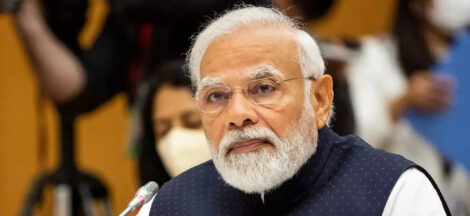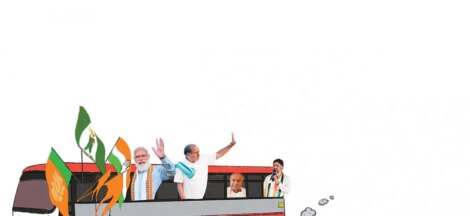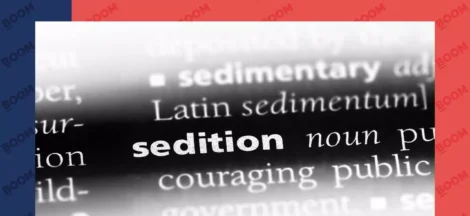By K R Sudhaman
The unusual spurt in diesel and petrol prices as a result of deadly cocktail of surging global oil prices and falling rupee value signals danger to the economy, now on the path to recovery clocking 8 per cent GDP in the first quarter of this financial year.
Surging fuel prices have the potential to destablise the economy as it is inflationary, can widen current account deficit, already hit by falling rupee and impact strained fiscal deficit if tax cuts are resorted to rein-in prices. It is certainly a dilemma for the Narendra Modi government, which appears to have not managed fuel prices well when compared to the previous UPA government.
Notwithstanding surging global oil prices and falling rupee, one of the reasons for high domestic fuel prices is the high taxes both at the centre and states as petrol and diesel are considered to be milch cows for revenue mop-up.
Petrol and diesel prices touched a new high early this week. Petrol touched a maximum Rs 86.56 a litre and diesel Rs 75.54 in Mumbai. The petrol price included Rs 19.48 excise, dealer commission of Rs 3.63 and state VAT of Rs 16.83…
According to government data, the central excise duty on petrol and diesel more than tripled between 2013-14 and 2017-18. During the same period state VAT increased more than 38 per cent. The excised duty on petrol increased from Rs 9.48 per litre to Rs 21.48 in four years. In case of diesel it increased more than four times from Rs 3.56 to Rs 15.33. In other words, every Rs 100 spent on petrol nearly Rs 46 goes to central and state government by way of taxes and in case of diesel it is nearly Rs 36.
Analysts say the government taps this one source of tax to virtually cripple the budget of common man as both the Centre and states together mop up around Rs 5 lakh crore alone from this one source.
There are also studies to show that $10 per barrel hike in global crude oil prices reduces GDP by 0.3 per cent and a Rs 10 per cent hike in domestic fuel prices push up inflation by 0.5 per cent.
During UPA, the government drastically cut taxes in fuel prices as well as import duty on crude to zero per cent to ensure the suffering of common man was minimized as crude oil prices surged and touched a high of $147 a barrel at one point of time.
Whereas BJP led NDA government used falling oil prices as opportune moment to not only totally dismantle administered prices, sound economics, but also substantially hiked taxes to mop up additional revenues to narrow fiscal deficit. This also helped to find additional resources for government programmes, some of which are good and many were wasteful revenue expenditure.
The central government raised excise on fuel nine times in 3-4 years to earn high revenue from one commodity. In fact, the Centre gave tax sops worth Rs 5.75 lakh crore to corporates, which is not investing adequately in recent years to step up industrial production and economic growth. In such a scenario why should common man suffer when corporates are piling up cash. There is certainly some justification in the opposition charge that the BJP is encouraging crony capitalism.
With rupee crossing Rs 71 to a dollar, the fuel prices will only go up unless the taxes are reduced to provide relief to common man. India imports about 80 per cent of its crude oil, and falling rupee will make it that much more costlier. This will also worsen burgeoning current account deficit at over 2.5 per cent of GDP.
With crude oil hovering around $75 a barrel from a mere $33 a barrel in 2015, there are forecasts that it could go up further with threats of cut in oil production and US sanctions on Iran. India alone is not the victim; several other emerging economies and South Asian economies, which are dependent on imports for its energy requirement, have also been affected. But fuel prices in these countries, including China, Pakistan, Nepal and Sri Lanka, are much lower than India as taxes are much lower.
The per litre price of petrol in United States is Rs 53.88 equivalent, in Pakistan, it is Rs 65.2 equivalent, Sri Lanka, Rs 69.14 equivalent, Nepal Rs 71.25 and Beijing Rs 70.49. All these countries had much less fuel prices than India.
It was time India looked at the possibility of bringing petrol and diesel under Goods and Services Tax so that incidence of tax is reduced and cascading effects minimized for the benefit of common man. Also it is time the government explored opportunities of getting tax revenue. Widening tax base and taxing rich farmers’ income could be some of the options. Of course, keeping tax rates high on tobacco and alcohol is not that exploitative as they are sin goods injurious to health. But keeping the tax rates high on fuel is a sin that hits people in every walk of life, particularly the poor. (IPA Service)
The Picture is Taken from Internet.
The post Unusual Spurt In Fuel Prices Cause For Concern appeared first on Newspack by India Press Agency.


